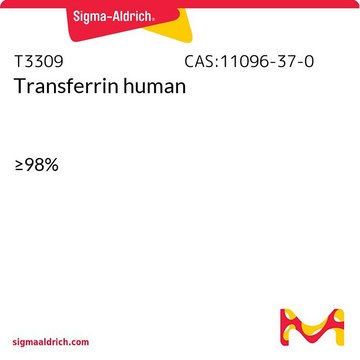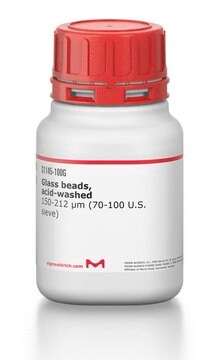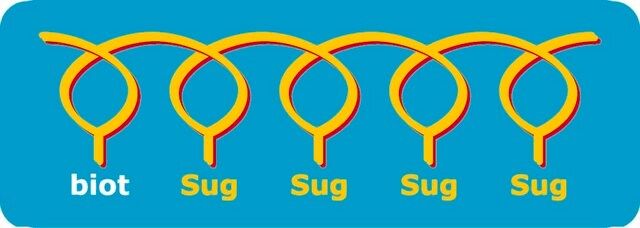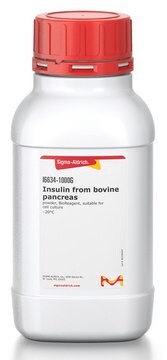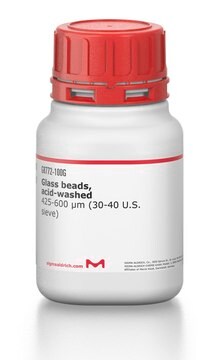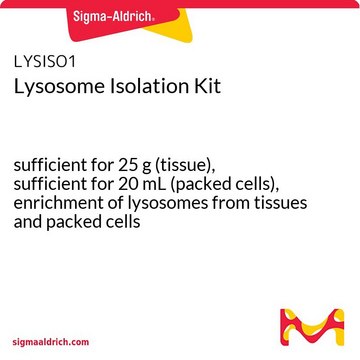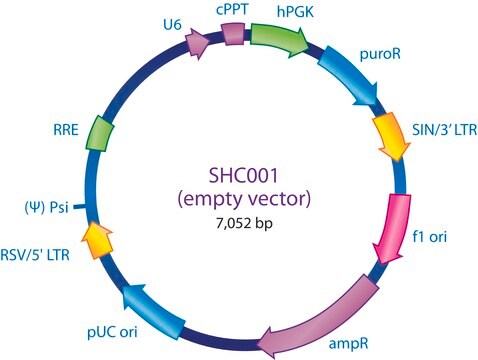SCC442
HPDE6c7 Human Pancreatic Duct Epithelial Cell Line
Sinônimo(s):
Human Pancreatic Cell Line
Faça loginpara ver os preços organizacionais e de contrato
About This Item
Código UNSPSC:
41106514
NACRES:
NA.81
Produtos recomendados
fonte biológica
human
Nível de qualidade
embalagem
vial of >1X10⁶ cells
fabricante/nome comercial
Millipore
modo de crescimento
N/A
técnica(s)
cell culture | mammalian: suitable
Condições de expedição
liquid nitrogen
temperatura de armazenamento
−196°C
Aplicação
- Each vial contains > 1X106 viable cells.
- Cells are tested negative for infectious diseases by a Human Essential CLEAR panel by Charles River Animal Diagnostic Services.
- Cells are verified to be of human origin and negative for inter-species contamination from mouse, rat, chinese hamster, Golden Syrian hamster, and Non-human Primate (NHP) as assessed by a Contamination Clear panel by Charles River Animal Diagnostic Services
- Cells are negative for mycoplasma contamination.
Pancreatic cancer is the fourth commonest cause of cancer death in North America and has one of the worst prognoses. Greater than 90% of these tumors arise from the pancreatic duct epithelium.1 Even when the primary tumor is small and localized, the prognosis remains poor and chemotherapy or radiotherapy has demonstrated limited effectiveness.2 The availability of dynamic models remains crucial to the study and understanding of the biological significance of the genetic changes underlying pancreatic cancer, especially in the context of pancreatic duct epithelial cell carcinogenesis.
The immortalized HPDE6c7 cell line demonstrates a near normal genotype and phenotype of pancreatic duct epithelial cells.3 HPDE6c7 cells retain normal Ki-ras, p53, C-myc, and p16INK4A genotypes but lack the p53 functional pathway.3 The HPDE6c7 cell line is useful for studies on the molecular basis of pancreatic duct cell carcinogenesis and islet cell differentiation. HPDE6c7 cells are a versatile model for the pancreatic ductal epithelium, facilitating the development of strategies for the chemoprevention of human pancreatic cancers.
Source
HPDE6c7 cells originated from normal human pancreatic duct of a 63-year-old female, having been genotypically altered by infection with retrovirus vector expressing E6E7 genes of human papilloma virus (HPV)-16.3
References
1. Am J Pathol 1996, 148(6): 1763-1770.
2. Am J Pathol 1998, 153(1): 263-269.
3. Am J Pathol 2000, 157(5): 1623-1631.
The immortalized HPDE6c7 cell line demonstrates a near normal genotype and phenotype of pancreatic duct epithelial cells.3 HPDE6c7 cells retain normal Ki-ras, p53, C-myc, and p16INK4A genotypes but lack the p53 functional pathway.3 The HPDE6c7 cell line is useful for studies on the molecular basis of pancreatic duct cell carcinogenesis and islet cell differentiation. HPDE6c7 cells are a versatile model for the pancreatic ductal epithelium, facilitating the development of strategies for the chemoprevention of human pancreatic cancers.
Source
HPDE6c7 cells originated from normal human pancreatic duct of a 63-year-old female, having been genotypically altered by infection with retrovirus vector expressing E6E7 genes of human papilloma virus (HPV)-16.3
References
1. Am J Pathol 1996, 148(6): 1763-1770.
2. Am J Pathol 1998, 153(1): 263-269.
3. Am J Pathol 2000, 157(5): 1623-1631.
Características e benefícios
HPDE6c7 cells are a versatile model for the pancreatic ductal epithelium, facilitating the development of strategies for the chemoprevention of human pancreatic cancers.
Armazenamento e estabilidade
Store in liquid nitrogen. The cells can be cultured for at least 10 passages after initial thawing without significantly affecting the cell marker expression and functionality.
Outras notas
This product is intended for sale and sold solely to academic institutions for internal academic research use per the terms of the “Academic Use Agreement” as detailed in the product documentation. For information regarding any other use, please contact licensing@emdmillipore.com.
Exoneração de responsabilidade
RESEARCH USE ONLY. This product is regulated in France when intended to be used for scientific purposes, including for import and export activities (Article L 1211-1 paragraph 2 of the Public Health Code). The purchaser (i.e. enduser) is required to obtain an import authorization from the France Ministry of Research referred in the Article L1245-5-1 II. of Public Health Code. By ordering this product, you are confirming that you have obtained the proper import authorization.
Unless otherwise stated in our catalog or other company documentation accompanying the product(s), our products are intended for research use only and are not to be used for any other purpose, which includes but is not limited to, unauthorized commercial uses, in vitro diagnostic uses, ex vivo or in vivo therapeutic uses or any type of consumption or application to humans or animals.
Código de classe de armazenamento
10 - Combustible liquids
Classe de risco de água (WGK)
WGK 2
Ponto de fulgor (°F)
Not applicable
Ponto de fulgor (°C)
Not applicable
Certificados de análise (COA)
Busque Certificados de análise (COA) digitando o Número do Lote do produto. Os números de lote e remessa podem ser encontrados no rótulo de um produto após a palavra “Lot” ou “Batch”.
Já possui este produto?
Encontre a documentação dos produtos que você adquiriu recentemente na biblioteca de documentos.
Nossa equipe de cientistas tem experiência em todas as áreas de pesquisa, incluindo Life Sciences, ciência de materiais, síntese química, cromatografia, química analítica e muitas outras.
Entre em contato com a assistência técnica

